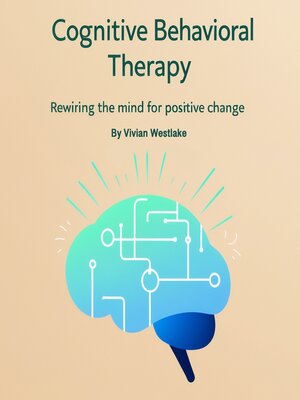Cognitive Behavioral Therapy
audiobook (Unabridged) ∣ Rewiring the Mind for Positive Change
By Vivian Westlake

Sign up to save your library
With an OverDrive account, you can save your favorite libraries for at-a-glance information about availability. Find out more about OverDrive accounts.
Find this title in Libby, the library reading app by OverDrive.



Search for a digital library with this title
Title found at these libraries:
| Library Name | Distance |
|---|---|
| Loading... |
Cognitive Behavioral Therapy (CBT) is a widely recognized and effective approach to mental health treatment that focuses on the powerful connection between our thoughts, emotions, and behaviors. The premise behind CBT is simple: our thoughts shape how we feel, and how we feel influences how we behave. In turn, our behaviors can either reinforce or challenge our thought patterns. By learning to identify, challenge, and reframe negative or distorted thoughts, CBT offers a roadmap to breaking unhealthy cycles and fostering positive change.
The key to lasting improvement in mental health often lies in addressing the underlying thought patterns that influence our emotional states. Our minds can become entrenched in negative thinking habits, which can lead to persistent feelings of sadness, anxiety, or stress. These patterns can often seem automatic or out of our control, but through CBT, we gain the tools to not only understand but actively change how we think.
The first step in this process is understanding the role of thought patterns in mental health. We all experience a wide range of thoughts throughout the day, some positive and others negative. While we may not always be able to control what thoughts arise, we can gain control over how we respond to them. Negative thoughts such as self-doubt, catastrophizing, and overgeneralizing can trigger emotional distress, which in turn influences our behaviors. If left unaddressed, these cycles can become entrenched, affecting our overall well-being and quality of life.







